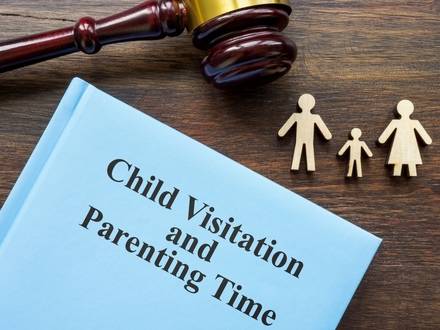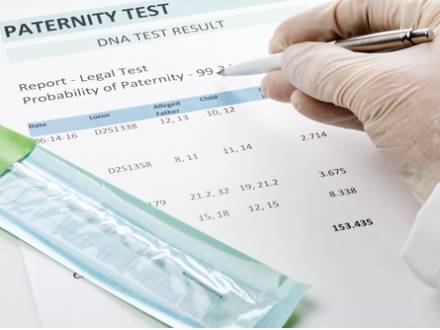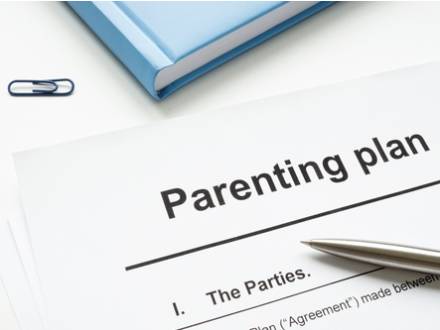Recent Blog Posts
What Income Counts for Child Support in Illinois?
Posted on December 21, 2025 in Child Custody
 In Illinois, child support is based on a broad view of income, not just a paycheck. This matters for parents trying to budget, plan, or resolve support questions during or after a divorce. Courts consider multiple income sources to ensure that child support arrangements accurately reflect a parent’s ability to contribute.
In Illinois, child support is based on a broad view of income, not just a paycheck. This matters for parents trying to budget, plan, or resolve support questions during or after a divorce. Courts consider multiple income sources to ensure that child support arrangements accurately reflect a parent’s ability to contribute.
As of 2025, Illinois continues to use the income shares model for child support, which considers both parents’ incomes and the child's needs. If you have concerns about how income will be calculated in your case, our experienced DuPage County, IL child support lawyers can help.
What Does Illinois Consider Income for the Purpose of Child Support Calculations?
Illinois child support is governed by the Illinois Marriage and Dissolution of Marriage Act. Section 750 ILCS 5/505 explains how courts calculate support and what income is considered.
Continue Reading ››
Can You Back Out of Divorce Mediation After You Start in Illinois?
Posted on December 15, 2025 in Mediation
 Many couples in DuPage County choose mediation as a way to resolve their divorce issues outside of court. The process offers privacy and can reduce conflict, but it doesn't always lead to the results both spouses want.
Many couples in DuPage County choose mediation as a way to resolve their divorce issues outside of court. The process offers privacy and can reduce conflict, but it doesn't always lead to the results both spouses want.
When mediation stalls or feels unproductive, there is no reason to feel stuck, since you are not under any obligation to continue. Understanding when and how to step away can help you make the best choice for your situation. Our Wheaton, IL divorce lawyer can guide you as you decide what to do next.
What Are Good Reasons To Stop Divorce Mediation?
Mediation works well for some families but not for all. If it doesn’t work for yours, that does not mean that you failed. It simply shows that this type of dispute resolution doesn’t suit your family’s unique needs. Some common reasons to drop the mediation process include:
Continue Reading ››
Can I Change the Visitation Schedule Now That My Child Is Older?
Posted on December 08, 2025 in Child Custody
 As children grow, their schedules, interests, and needs evolve. A parenting time plan that worked when your child was in elementary school may no longer fit a teenager’s busy routine. When that happens, it may be time for a change. Our knowledgeable DuPage County, IL child custody lawyer can help you petition for modification and ensure you have sufficient evidence that the change would benefit your child.
As children grow, their schedules, interests, and needs evolve. A parenting time plan that worked when your child was in elementary school may no longer fit a teenager’s busy routine. When that happens, it may be time for a change. Our knowledgeable DuPage County, IL child custody lawyer can help you petition for modification and ensure you have sufficient evidence that the change would benefit your child.
Why Might You Need To Change Parenting Time as a Child Ages?
Some reasons you might need to change a parenting time plan as your child grows older include:
How Do You Handle Divorce in Illinois When Your Spouse Controls the Money?
Posted on December 04, 2025 in Asset Division
 Many questions come up when people find themselves considering divorce. The process can be complicated at the best of times, but if one spouse controls the money, divorce can seem even harder to navigate for the other spouse.
Many questions come up when people find themselves considering divorce. The process can be complicated at the best of times, but if one spouse controls the money, divorce can seem even harder to navigate for the other spouse.
In Illinois, the law protects both spouses, even when one person controls the finances. You still have the right to financial support, access to records, and a fair share of marital property. With help from an experienced Wheaton, IL divorce lawyer, you can move forward with your divorce in a more financially stable position.
How Do I Leave My Spouse When I Do Not Have Access to Our Money?
When your spouse handles every account and controls spending, it can feel impossible to leave. However, Illinois law strives to find fair solutions for everyone. Under 750 ILCS 5/501(a)(1), the court can grant temporary financial support while your divorce is not yet finalized. This support can cover rent, food, and legal costs, giving you time to prepare for long-term financial independence.
Continue Reading ››
Can You Live Together While Getting Divorced in Illinois?
Posted on November 30, 2025 in Divorce
 In Illinois, you and your spouse can live together during your divorce. However, doing so can bring both practical and legal challenges. Before you start your divorce, you must understand what living together during the proceedings can mean for finances, custody, and your emotional well-being. The experienced DuPage County, IL divorce lawyers at Andrew Cores Family Law Group can help you make choices that protect your comfort and rights.
In Illinois, you and your spouse can live together during your divorce. However, doing so can bring both practical and legal challenges. Before you start your divorce, you must understand what living together during the proceedings can mean for finances, custody, and your emotional well-being. The experienced DuPage County, IL divorce lawyers at Andrew Cores Family Law Group can help you make choices that protect your comfort and rights.
Does Illinois Law Say Anything About Living Together While Getting a Divorce?
Illinois law does not require couples to live separately before filing for divorce. Under Section 401(a) of the Illinois Marriage and Dissolution of Marriage Act, you can obtain a divorce if your marriage has broken down irretrievably, regardless of whether you share a home. The law once required spouses to live "separate and apart" for a certain time before divorcing, but this rule was eliminated. Now, what matters is proving that the relationship cannot be repaired.
Continue Reading ››
How To Dispute Paternity in Illinois
Posted on November 25, 2025 in Paternity
 Disputing paternity means you want the court to review whether you are the child’s biological father. In Illinois, you can challenge paternity if you believe that the original paperwork or court ruling was wrong. However, you have to follow strict time limits and legal steps to do so. A knowledgeable Wheaton, IL paternity lawyer can guide you through each part of the process.
Disputing paternity means you want the court to review whether you are the child’s biological father. In Illinois, you can challenge paternity if you believe that the original paperwork or court ruling was wrong. However, you have to follow strict time limits and legal steps to do so. A knowledgeable Wheaton, IL paternity lawyer can guide you through each part of the process.
When Can You Challenge Paternity in Illinois?
Under the Illinois Parentage Act of 2015, paternity can be disputed under certain circumstances. Maybe you signed a Voluntary Acknowledgment of Paternity (VAP) by mistake, or you were pressured or misled into signing it. A VAP is a legal form that names you as a child’s father without going to court, and it legally binds you to that child. According to 750 ILCS 46/309, if you signed a VAP and think it was a mistake, you must challenge it within two years of learning new facts that suggest you are not the biological father.
Continue Reading ››
How To Enforce an Unpaid Alimony Order in Illinois
Posted on November 20, 2025 in Alimony/Spousal Support
 When an Illinois court orders your former spouse to pay alimony, also called spousal support or maintenance, they are legally obligated to pay. Unfortunately, that does not always mean that they will follow the order. If your ex is violating a court order, Illinois law gives you several options to enforce those payments. Working with our experienced DuPage County, IL alimony lawyers is the first legal step.
When an Illinois court orders your former spouse to pay alimony, also called spousal support or maintenance, they are legally obligated to pay. Unfortunately, that does not always mean that they will follow the order. If your ex is violating a court order, Illinois law gives you several options to enforce those payments. Working with our experienced DuPage County, IL alimony lawyers is the first legal step.
What Legal Options Do You Have To Collect Unpaid Spousal Maintenance?
When your ex refuses to pay alimony, the court has the power to make them comply. Under 750 ILCS 5/504, spousal maintenance is a legally binding judgment, and under 750 ILCS 5/508, Illinois courts have the authority to enforce maintenance orders and impose penalties when a spouse does not comply. Failing to follow it can result in the court finding them "in contempt." If that happens, they can face fines or even jail. Some ways you can collect payment include:
Continue Reading ››
Can I Write My Own Prenuptial Agreement in Illinois?
Posted on November 15, 2025 in Prenuptial and Postnuptial Agreements
 If you are thinking about writing your own prenuptial agreement to save time and money, you should consider legal guidance. While it may seem simple, Illinois law has strict rules that must be followed. If they are not, your agreement may not hold up in court. Our experienced Wheaton, IL prenuptial agreement lawyers can help you ensure that your agreement is both valid and effective in protecting your interests.
If you are thinking about writing your own prenuptial agreement to save time and money, you should consider legal guidance. While it may seem simple, Illinois law has strict rules that must be followed. If they are not, your agreement may not hold up in court. Our experienced Wheaton, IL prenuptial agreement lawyers can help you ensure that your agreement is both valid and effective in protecting your interests.
Is It Legal to Write Your Own Prenup in Illinois?
You can write your own prenuptial agreement in Illinois. However, the agreement must meet the requirements set out in the Illinois Uniform Premarital Agreement Act, which states that a prenup must be in writing and signed by both parties before the marriage. It also has to be entered into voluntarily. If one person feels pressured or does not fully understand what they are signing, a judge may refuse to enforce it.
Continue Reading ››
How Collaborative Law Can Support Co-Parenting After Divorce in Illinois
Posted on November 09, 2025 in Collaborative Law
 Divorce can change your daily life and your children’s routines. Even when the marriage ends, you still want your children to feel safe, supported, and loved by both parents. Collaborative law is one way to handle divorce while keeping conflict to a minimum. If you work with one of our DuPage County, IL divorce lawyers, you can take a more peaceful approach to co-parenting. This method focuses on cooperation instead of arguments.
Divorce can change your daily life and your children’s routines. Even when the marriage ends, you still want your children to feel safe, supported, and loved by both parents. Collaborative law is one way to handle divorce while keeping conflict to a minimum. If you work with one of our DuPage County, IL divorce lawyers, you can take a more peaceful approach to co-parenting. This method focuses on cooperation instead of arguments.
What Is Collaborative Law in an Illinois Divorce?
Collaborative law is a divorce process where both parents and their lawyers agree not to go to court. Everyone signs an agreement to work together and share information. The goal is to solve problems through respectful discussion. This approach helps keep control in your hands instead of leaving decisions to a judge who is not familiar with your family and their unique needs.
Continue Reading ››
How Do I Create a Parenting Plan in Illinois?
Posted on November 04, 2025 in Child Custody
 Creating a parenting plan is part of sharing custody in Illinois. It explains how you and the other parent will divide your children’s time, make decisions for them, and handle daily parenting responsibilities. If you are unsure about how to draft your parenting plan, either together with your co-parent or on your own, we can help. Our experienced Wheaton, IL child custody lawyers will ensure your plan complies with Illinois law and protects you and your child’s interests.
Creating a parenting plan is part of sharing custody in Illinois. It explains how you and the other parent will divide your children’s time, make decisions for them, and handle daily parenting responsibilities. If you are unsure about how to draft your parenting plan, either together with your co-parent or on your own, we can help. Our experienced Wheaton, IL child custody lawyers will ensure your plan complies with Illinois law and protects you and your child’s interests.
Requirements for an Illinois Parenting Plan
According to 750 ILCS 5/602.10, both parents must file a parenting plan within 120 days after a custody case begins. This document has to describe how parenting time and decision-making responsibilities will be divided. If you both agree and submit the same plan, the court can approve it without a hearing. If you disagree, the judge will review both your plans and decide what is best for your child.
Continue Reading ››







 In Illinois,
In Illinois,  Many couples in DuPage County choose
Many couples in DuPage County choose  As children grow, their schedules, interests, and needs evolve. A
As children grow, their schedules, interests, and needs evolve. A  Many questions come up when people find themselves considering
Many questions come up when people find themselves considering  In Illinois, you and your spouse can live together during your
In Illinois, you and your spouse can live together during your  Disputing
Disputing  When an Illinois court orders your former spouse to pay alimony, also called
When an Illinois court orders your former spouse to pay alimony, also called  If you are thinking about writing your own
If you are thinking about writing your own 
 Creating a
Creating a 
